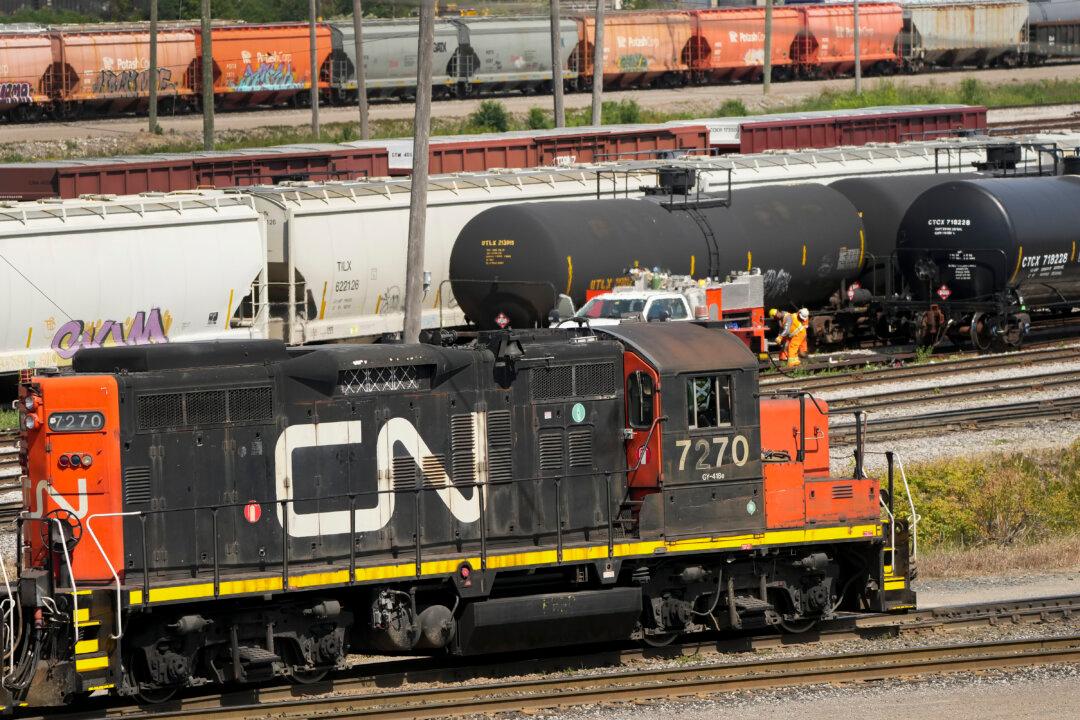The federal government is calling on the nation’s two leading railway companies and the Teamsters union to step up their efforts to prevent a historic strike with the potential to paralyze Canada’s economy.
The Canadian National Railway Co. and Canadian Pacific Kansas City Ltd. (CPCK) both face the potential for a work stoppage Aug. 22 if they fail to negotiate agreements with the thousands of employees represented by the Teamsters Canada Rail Conference (TCRC).





